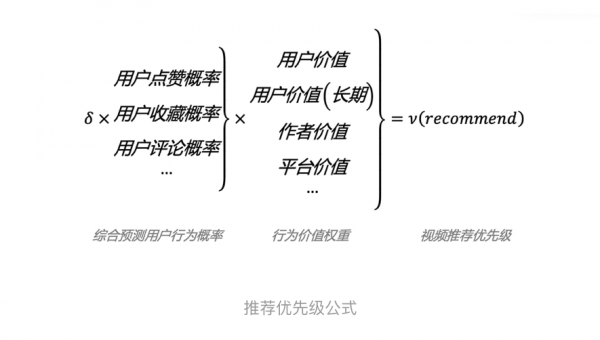Is the So-Called 'Guilt' of Recommendation Algorithms the Truth or a Scapegoat?
![]() 04/18 2025
04/18 2025
![]() 551
551
If not used properly, algorithms can be like wild horses, but when platforms meticulously control, continuously iterate, and upgrade them, they become formidable technological steeds.

From simple photo-taking to intelligent robots, algorithms have seamlessly integrated into our lives.
From straightforward rules to complex self-learning systems, algorithms continually endow machines with human-like intelligence. Driven by algorithms, generative AI, exemplified by DeepSeek, is rapidly evolving.
Furthermore, whether it's short videos on social platforms, news, e-books, or even shopping apps, every application on our phones can accurately gauge user preferences and predict "what you like" thanks to algorithms.
On one hand, algorithms drive technological progress. However, imaginings of algorithmic "technological conspiracies" persist. The internet is replete with criticisms of "information cocoons" and "algorithm deification," often targeting platforms' commercial behaviors.
Recently, Douyin's Safety and Trust Center website went online, publicly disclosing the principles of its recommendation algorithms for the first time, explaining how they predict user behavior probabilities. So, does the "information cocoon" really exist? Is the so-called "guilt" of recommendation algorithms the truth or a scapegoat?
Do viral videos truly possess a "traffic password"?
Years ago, Douyin gained widespread popularity with its music-synchronized short videos, leading many to perceive its content as "short, concise, and fast-paced." However, aside from top influencers, the most popular content creator on Douyin last year was Shi Tiesheng.
According to Douyin's "2024 Douyin Reading Ecosystem Data Report," there were 11.4343 million reading-related videos lasting 5 minutes or more, garnering 391 million likes. There were 7.3 million reading-related live streams, with an average of 3,076 viewers per stream. Additionally, there were 5.41 million reading and book review-related posts, receiving a total of 23.06 million comments. "I and the Earth Temple" emerged as the most popular classic on Douyin. The report revealed that there were 186,000 videos related to Shi Tiesheng on Douyin, with a 192% increase in volume, a 415% increase in total duration, and a 51% increase in total shares.
This seems to contradict the so-called "traffic password" widely discussed.
Many bloggers who "teach people how to create content" often emphasize understanding the "algorithm logic of content platforms" to grasp the "traffic password" and create viral content.
Many publicly summarized algorithmic logics involve tagging content and users, allowing the algorithm to push matching videos to audiences with specific tastes. It is also said that the algorithm evaluates content quality through various metrics like completion rate, like rate, share rate, fan conversion rate, and comment rate, and then promotes it to the content flow pool.
If we judge whether a video will go viral based on the above logic, content about "Shi Tiesheng" clearly does not fit the public perception of "hot topics" and "traffic." In reality, most summaries of the so-called "traffic password" by the public are overly simplistic, lacking objectivity, and even containing factual errors.
Douyin's Safety and Trust Center actually provides a detailed explanation of how the algorithm makes recommendations.
First, algorithms predict user behavior through complex processes such as data collection, feature engineering, and model training. Essentially, it is a mathematical model calculation process. The essence of recommendation algorithms is an extremely efficient information filtering system. Personalized recommendation algorithms are akin to customizing an information "courier" for each person, efficiently and accurately pushing suitable information to users to meet their diverse needs.
Actions like opening Douyin, watching videos, swiping past videos, liking, and favoriting are all feedback mechanisms. The core logic of Douyin's publicly disclosed recommendation algorithm can be simplified as the "recommendation priority formula": comprehensive prediction of user behavior probability × behavior value weight = video recommendation priority.

In other words, content recommendations on Douyin utilize a multi-objective recommendation system that optimizes content value assessment through a highly complex system. It's not just about likes and favorites; the behavioral value weights of different users and authors, among other factors, collectively determine the video recommendation priority.
Simultaneously, Douyin has its own value model assessment. In essence, through the value model, the value of user interaction behavior is calculated, and various values are weighted by continuously adjusting parameters. It not only focuses on the content itself and user feedback but also considers the author's earnings and platform ecology.
This explains why Shi Tiesheng became the most popular content creator on Douyin: it is the combined effect of the creator's exceptional output, users' positive feedback, and the platform's promotion of high-quality content.
Breaking the Information Cocoon is the Goal of Algorithms
Whenever algorithms are mentioned, someone inevitably brings up the "information cocoon" in the modern online world.
The term "information cocoon" is famously sourced from American law professor Cass Sunstein's "Infotopia," referring to individuals focusing solely on self-selected or pleasing content, reducing exposure to other information. Over time, they become increasingly confined within a "cocoon" woven by themselves, akin to silkworms. This unsubstantiated hypothesis has gradually been generalized and hyped in the current internet environment.
While this "cocoon" may be strengthened by technology, it must be acknowledged that this phenomenon is largely driven by personal preferences. Simply put, humans inherently seek information aligning with their preferences, which is the primary reason for the so-called "information cocoon."
However, the significance of algorithms lies in enabling users to obtain information more efficiently in the current era of information overload.
Let's consider a set of data comparisons.
In the pre-information era, most people obtained information through friends and family, or slightly more through newspapers and books. Now, according to IDC's "Data Age 2025" report, the global data generation will grow from 33 ZB (1 ZB equals 10 trillion terabytes) in 2018 to 175 ZB. At a download speed of 25Mb/s, it would take a person 1.8 billion years to download all the data generated by humanity in 2025. Specifically, for each individual, the incremental information we face on various platforms daily far exceeds our processing capabilities.
Therefore, algorithms meticulously select from massive amounts of data and push higher-quality content through calculations. To some extent, they can also break the information cocoon. From a business rationality perspective, showing users more diverse content is beneficial for the platform's long-term value, aligning with users' interests. Various platforms have long engaged in practices to break the information cocoon.
For example, most platforms now offer the option to "turn off personalized recommendations." Furthermore, platforms continuously optimize algorithm logic, such as improving the "negative feedback mechanism" by initially focusing on likes and later incorporating data like "not interested" into model training.
Xiaohongshu previously emphasized that users can control content selection and management through "content preference adjustments." This makes it easier for users to actively break the cycle of "seeing what you've seen before and always being pushed the same content," enhancing algorithm efficiency.
Under the multi-objective modeling system, Douyin's algorithm has a dedicated exploration dimension, guiding the algorithm to break the "cocoon" through goals such as diversity exploration and interest exploration.
In fact, through the continuous improvement and practice of algorithms on various platforms, we can recognize that although algorithms are complex, they can also be "trained." Han Shangyou, President of Douyin, once stated, "To truly realize the 'upward' and 'benevolent' nature of algorithms, we need to continuously improve from the perspective of their principles and effective mechanisms."
For instance, Douyin once tried directly heating up content related to knowledge, history, technology, etc., but this approach altered the model's normal calculation logic, interfering with subsequent content recommendations.
To solve this problem, Douyin changed its approach, specifically training a model to estimate the probability of favorites and repeat views, and placing the favorite button in the most accessible spot on the homepage. Through repeated practice and trial and error, in 2024, an ultra-long video titled "450-Minute Interpretation of A Dream of Red Mansions" received over 300 million views and 7 million favorites on Douyin.
Similarly, this also means that with the continuous efforts of various platforms, algorithms are becoming more suitable for the current network environment and user mindset.
When Algorithms Enter Our Lives
As mentioned earlier, algorithms have continuously improved during their development, and platforms have proactively made adjustments based on market feedback at different stages. More importantly, in the process of continuous algorithm improvement, the social value they bring is gradually becoming apparent.
First, the fundamental principle of recommendation algorithms is efficient distribution, connecting isolated points of information and people. When different information encounters different groups, it brings varied effects, thereby generating greater social value.
In 2015, when most physical bookstores were declining, e-commerce giant Amazon opened a physical bookstore that achieved break-even within a year and a half. When all traditional bookstores were astonished, they discovered that the bookstore's most outstanding feature was its ability to generate "recommended booklists" through algorithms based on online reader ratings, pre-sales, sales rankings, etc. Many readers found the books they wanted on the shelves through such efficient recommendations.
Now, Douyin's algorithm further promotes knowledge popularization through precise distribution, interest connection, and ecosystem co-construction.
There is a fascinating example on Douyin. Last year, an apple with mushrooms growing on it became an internet sensation. The story began when a Zhejiang netizen shared that an apple in their home grew mushrooms during the plum rain season. This caught the attention of Dr. Xu from the Kunming Institute of Botany, Chinese Academy of Sciences, who bought the mushroom sample for research and reported progress to netizens in real-time on Douyin. Many netizens also inquired about the colonies they had seen in the comments section, with over 60 million netizens jointly witnessing this nationwide knowledge relay.
Now, through the combined action of collaborative filtering algorithms and knowledge graph reasoning, Douyin's algorithm can recommend related science content based on user behavior, expanding into related fields to form a "knowledge chain reaction." Even niche knowledge such as oracle bone inscriptions and string theory can find an audience through algorithms.
Furthermore, algorithms are promoting more tangible benefits for the people. From the popularity of Zibo barbecue to lesser-known cities like Harbin and Tianshui, to agricultural products leaving the mountains, the positive role of algorithms behind these phenomena cannot be overlooked.
Douyin's algorithm focuses on learning users' interests, browsing history, purchase behavior, etc., through recall, filtering, sorting, and other processes. By analyzing data, it accurately pushes agricultural products from the mountains to users interested in and in need of such products. The algorithm also helps create "new farmer IPs," allowing the public to associate local specialties with farmers' stories.
According to Douyin E-commerce's "2024 Douyin E-commerce Harvest Festival Data Report," from September 2023 to September 2024, Douyin E-commerce sold a total of 7.1 billion agricultural product orders, with an average of 17.4 million agricultural product packages being shipped to various parts of the country daily, continuously driving high-quality agricultural products "out of the village and into the city." The number of agricultural product merchants on the platform increased by 63% year-on-year, and the number of creators in agriculture, rural areas, and farmers increased by 52% year-on-year.
In summary, if not used properly, algorithms can be like wild horses, but when platforms meticulously control, continuously iterate, and upgrade them, they become formidable technological steeds. It's worth acknowledging that Douyin's public disclosure of its algorithm is a positive practice. At least it lets the public know that with human operation and platform governance as guides, algorithms will continue to improve and bring vibrant colors to people's digital lives.








